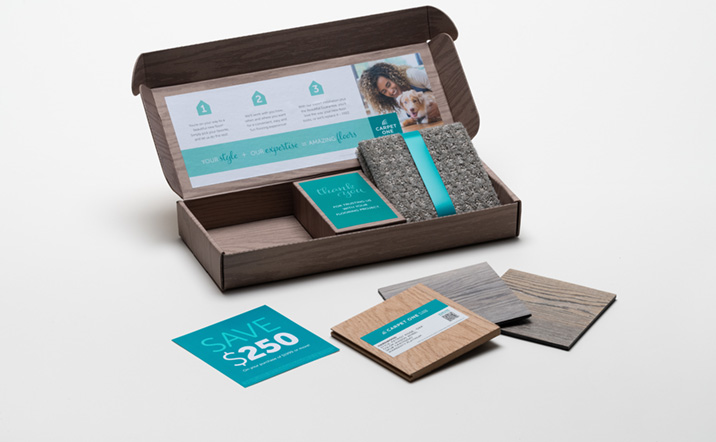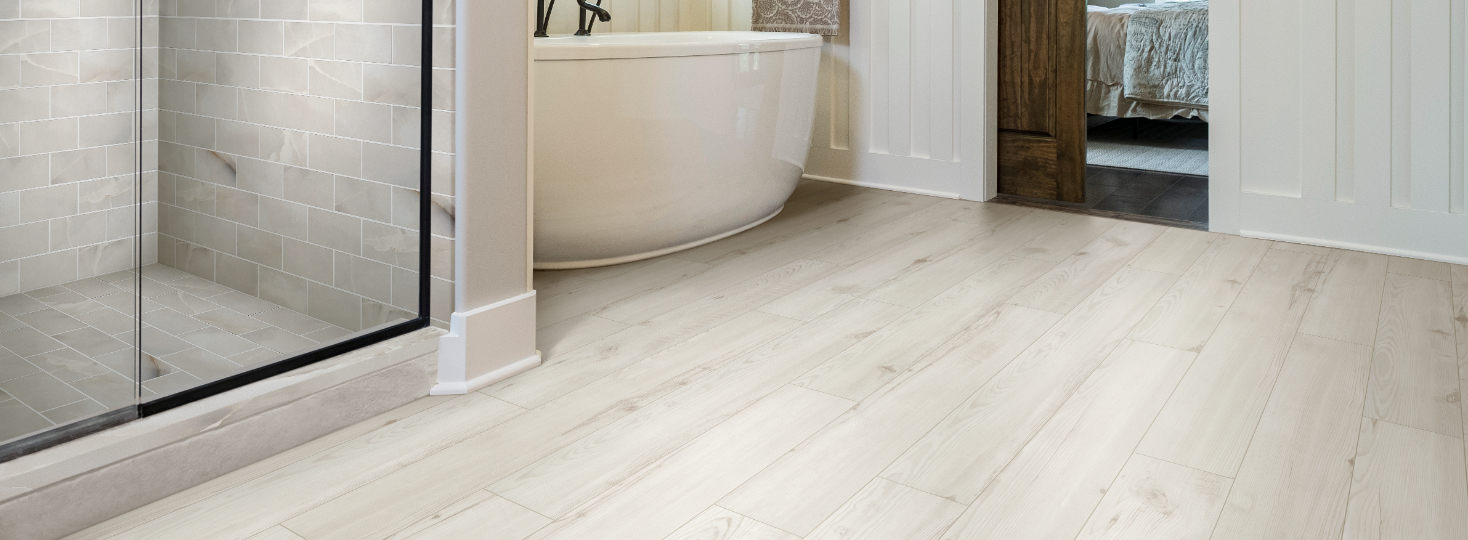
Pine Hardwood Flooring
Pine wood, a durable and sustainable flooring option, can be colored almost white to golden yellow to rich brown.

Pine wood, a durable and sustainable flooring option, can be colored almost white to golden yellow to rich brown.
No items could be found with the selected filters.
Please try your search again.

Our designers share tips and top trends for every season. Discover your next home project with the help of our blog.

Get up to six samples delivered to your door.

Pine wood flooring is a classic selection that dates back to early American colonists who cut down tall native pines to create ship masts and wide-cut plank floors. Today's pine wood flooring largely features white pine, a durable softwood that ranges in color from almost white to golden yellow to rich brown.
Because pine grows quickly and is easy to source in the US, pine flooring is a sustainable option for environmentally conscious homes. Pine's rustic appeal makes it a popular addition to log cabins, lake houses, and country homes, but it also shines in contemporary spaces–both commercial and residential.
Pine hardwood flooring is a bit of a misnomer since pine is actually a softwood, not a hardwood like maple or oak. Even so, pine planks provide durability and charm once installed. Pine wood flooring often comes unfinished but you can easily adapt the floors to fit your design style with stain or paint. Plus, as they age and wear, the wood distresses to provide a visible patina that adds more character over time.
You have two options when considering pine flooring: standard or knotty pine.
Pine has long been available in wide planks and installed in North American homes. In fact, you can see wide plank pine flooring in historic homes throughout New England. The light hue and fewer seams with wide pine flooring make it the ideal option for smaller rooms that can benefit from the illusion of space.
As you can guess from its use in historic properties, pine wood floors are built to last. Though made of softwood, the density provides enough strength to stand up to average household wear and tear. Like standard solid wood flooring, pine floors don't do well in rooms with high moisture levels, like bathrooms, mudrooms, or basements.
Maintaining your pine floors will ensure a long life and reduce the amount of visible distress. Routinely clean them by sweeping or vacuuming without the beater bar and immediately wipe up any spills or accidents to avoid swelling or warping.
Depending on your manufacturer’s warranty, your pine flooring might also benefit from periodic sanding, staining, and refinishing. In a household with light traffic, the finish on your pine wood floors will last longer than in homes with more traffic.
You’ll be pleased to know that knotty pine flooring and standard pine flooring both can last well over 100 years, but how long your flooring lasts depends on several factors:
You can expect pine planks to be visibly distressed over time with wear, which adds an authentic charm. See for yourself in the historic New England homes that boast pine floors dating back more than 300 years.
Like all hardwood flooring, pine wood planks need to acclimate to the temperature and moisture levels of your space for at least 72 hours prior to installation. This important step helps prevent warping, shrinking, and buckling due to moisture differences.
Although some experienced DIYers will install hardwood flooring on their own, we recommend seeking the help of a professional. Flooring installation can be tricky and to make sure it's done properly, it’s best to trust an experienced professional. Flooring installers are trained to catch possible issues that can impact the appearance, durability, and lifespan of your flooring. As an added bonus, many professional installers also offer flooring warranties that are hard to beat!
Is pine hardwood flooring a worthwhile investment for your home? Like most flooring solutions, it depends on what matters most to you! The pros of pine hardwood flooring include:
There are a couple of cons to consider:
Depending on your product's warranty and factory finish, you may want to strip, sand, and refinish pine wood flooring every few years.
Yes! Though pine is a softwood and not a hardwood, this wood species can still work well as a flooring option in the right spaces. Pine floors are durable but still susceptible to dents and scratches, and they don't do well in high moisture areas. For active households, consider engineered pine hardwood floors, which have the authentic pine look with the water and scratch resistance of modern engineered floors.
Yes! Pine planks are commonly used as a sustainable wood flooring option in homes and commercial spaces alike. Standard and wide pine flooring both offer durability that works well for light to medium traffic and age gracefully with wear over time.
Schedule your no-obligation, free, in-home estimate for quality, name-brand carpet or flooring by giving us a call or filling out the form below. Call Now: Thank you for contacting Carpet One Floor & Home. Your local flooring expert will reach out to you regarding your inquiry.
Save Up To $500 +
0% Financing for 12 Months!*
443-393-6421 Thank You For Contacting Us.